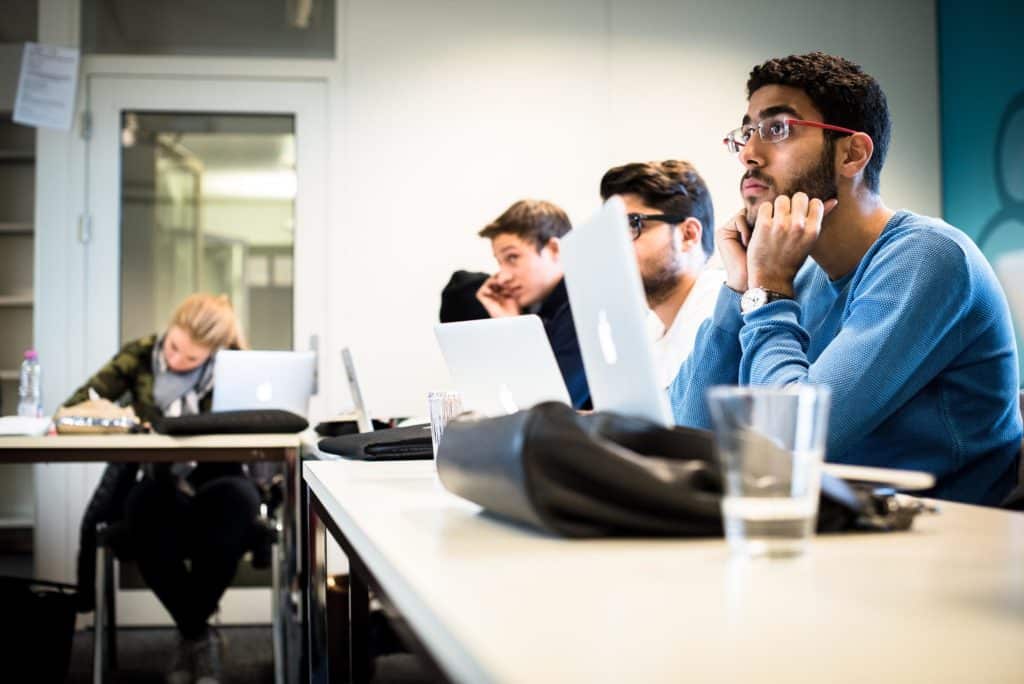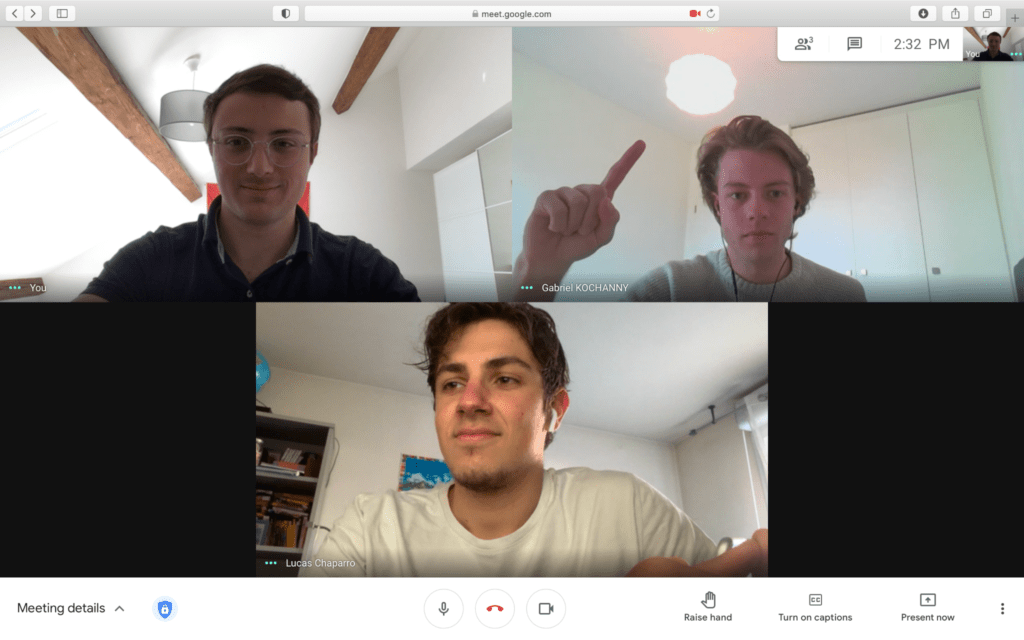
On March 25, the Junior Enterprise of HEC Lausanne hosted this year’s Business Game online—dedicating a full day (8:30 to 18:30) for participants to work in teams of four, developing innovative ways to solve study cases presented by UBS and Stouff Capital. Each solution had to be pitched to a jury, who selected the winning team of each case to receive CHF 2,000 (approximate equivalent of $2,190 USD).
Although the event targets third-year bachelor and master degree students, Business School Lausanne (BSL) students João Dassoler and Gabriel Ruthes Kochanny—both second years—decided to participate. In addition for a chance to compete for the winning prize, João and Gabriel considered this an opportunity to measure their knowledge compared to other students. It seems to have been an excellent move—with the pair ultimately winning the game!
Here’s a closer look at how these two students worked towards their win, continuing to develop their business knowledge and skills.
Expanding Knowledge and Skill Sets through Self-Directed and In-Class Learning
Despite knowing they’d have less experience than their competitors, João and Gabriel were eager to participate and acquire more practical experience to complement their studies. As the Business Game was a particularly intense competition—requiring participants to apply certain investment strategies to build stock portfolios and rebalance them, among other things—it required specific financial knowledge and advanced skills. Here, BSL students João and Gabriel benefited from dedicating their own free time to expanding their skill set and financial background.
Their curiosity and willingness to learn complemented their studies at BSL, allowing them to sharpen key skills that contributed to their win—including: advanced Excel skills, time management skills, investment and economic analysis skills, portfolio management skills, and strategic thinking. They were also able to expand on what they learned from BSL’s Coding for Business course, relying on these skills to get ahead in the Game.
“The Game organizers provided us with the data of over 2000 stocks, then we had to analyze all of this data and yield a portfolio with 100 stocks. So, coding is just essential to analyze big data,” notes João.

The Impact of Collaboration and Networking on Winning the Game and Developing Professional Skills
In addition to the skills gained from the classroom and through self-directed learning, both BSL students believe teamwork played a key role in their win. After joining the competition as a pair, João and Gabriel were assigned two other teammates to make up the game’s standard team of four. While one team member departed, leaving them to work as a trio, the students quickly noted that by combining each member’s unique skills they were able to delegate tasks and responsibilities efficiently. As João describes, “It was this cooperation that helped us to achieve the best performance.”

In both Gabriel and João’s view, the Business Game was instrumental in providing them access to the business world, where they can discuss high-level methodologies and connect with top industry professionals. This level of exposure positively impacts their professional development, and is something they strive to emphasize in an Investment Club they founded at BSL – open to both students and alumni. “We are both far from being the most knowledgeable on investment,” Gabriel says. “But since we are the founders (of this club), at least for me, I feel like a responsibility of getting better and evolving every day.” Through collaboration and networking initiatives, Gabriel and João can continue enhancing their skills after earning their business degree in Switzerland.
Looking for Opportunities to Gain Practical Experience while Earning a BBA degree
Having initiative and choosing to participate in these events and activities can help students grow and develop their professional futures. As João mentions, Lausanne is “a great place to be involved in finance and investment banking.” Both students urge others to be proactive—following clubs and other associations on social media and signing up for events without fear holding them back. “Even if you don’t win or anything, the experience you have getting in touch with those people and also, putting [into] practice what we have been studying directly, etc., well, it’s really good,” Gabriel shares.
Students completing a BBA degree at BSL can also take advantage of the school’s resources and career services team—providing tips on how best to develop CVs and LinkedIn profiles, as well as connecting students with internship opportunities. The school’s administration is also there to help students pursue their interests. In an effort to continue developing their skills after the Business Game, Gabriel and João have suggested creating a course focused on financial markets and wealth management to BSL. By seeking and capitalizing on these opportunities, students can make the most of their education.
Are you interested in attending a business school in Switzerland?
Contact BSL for more information!
